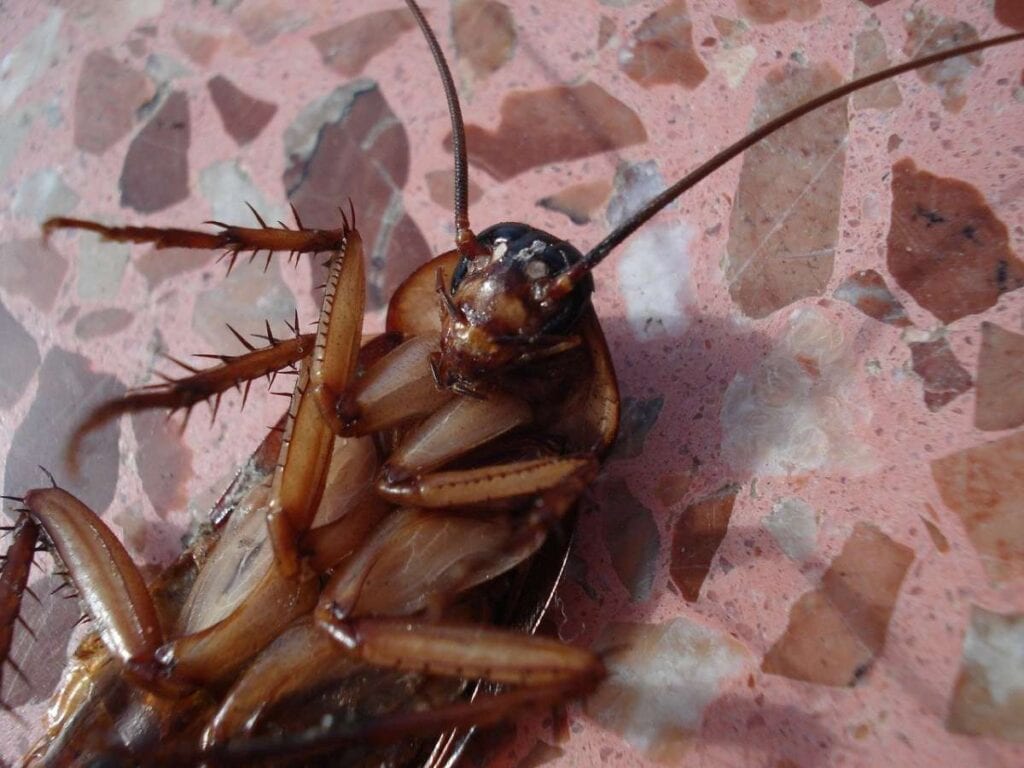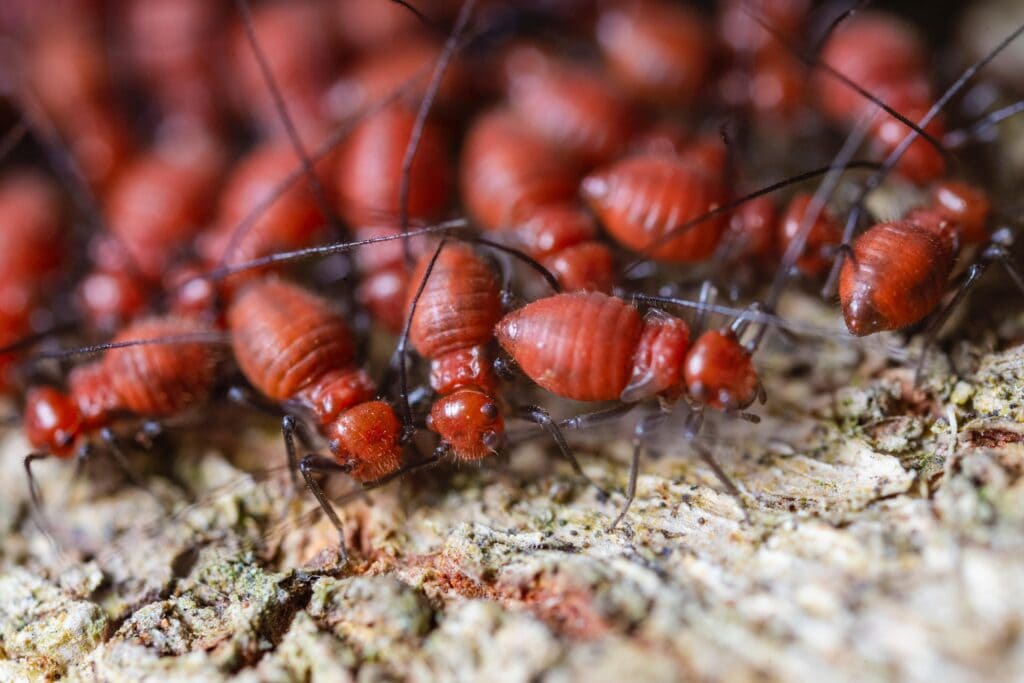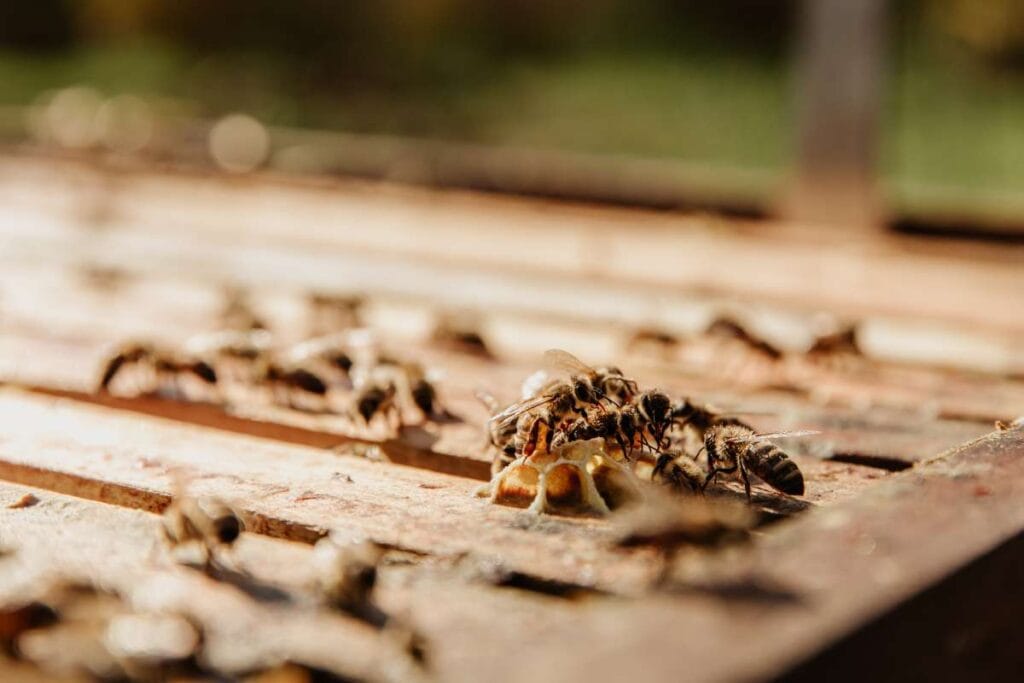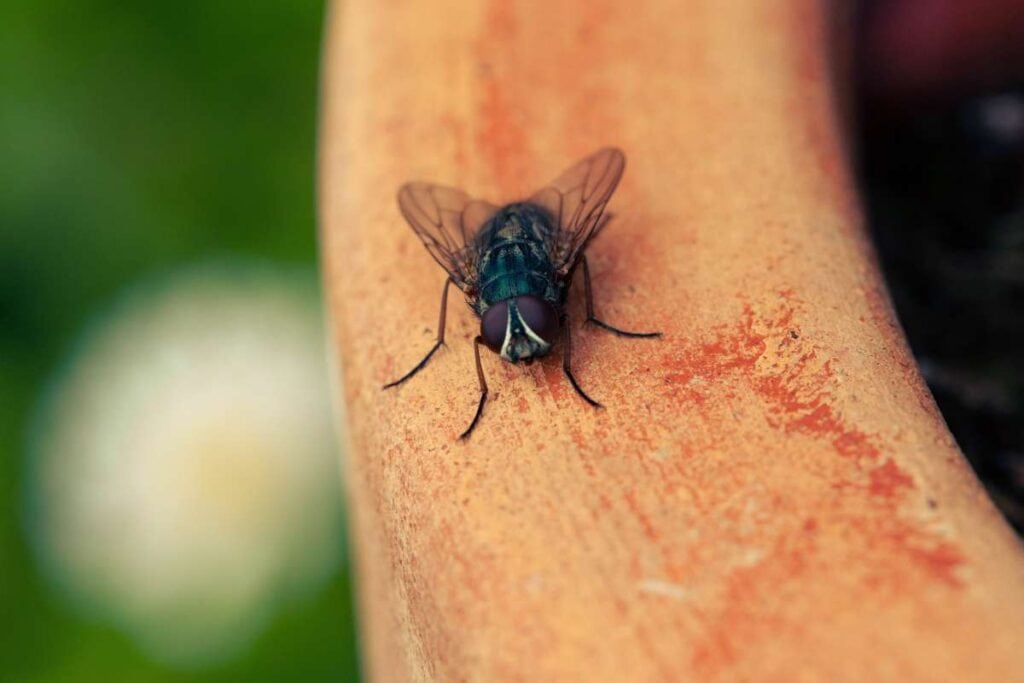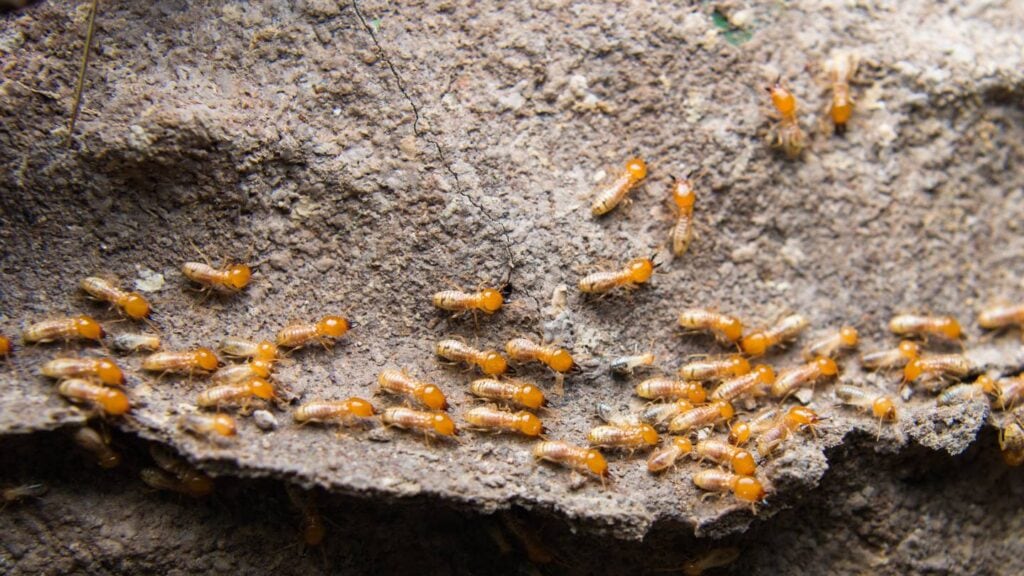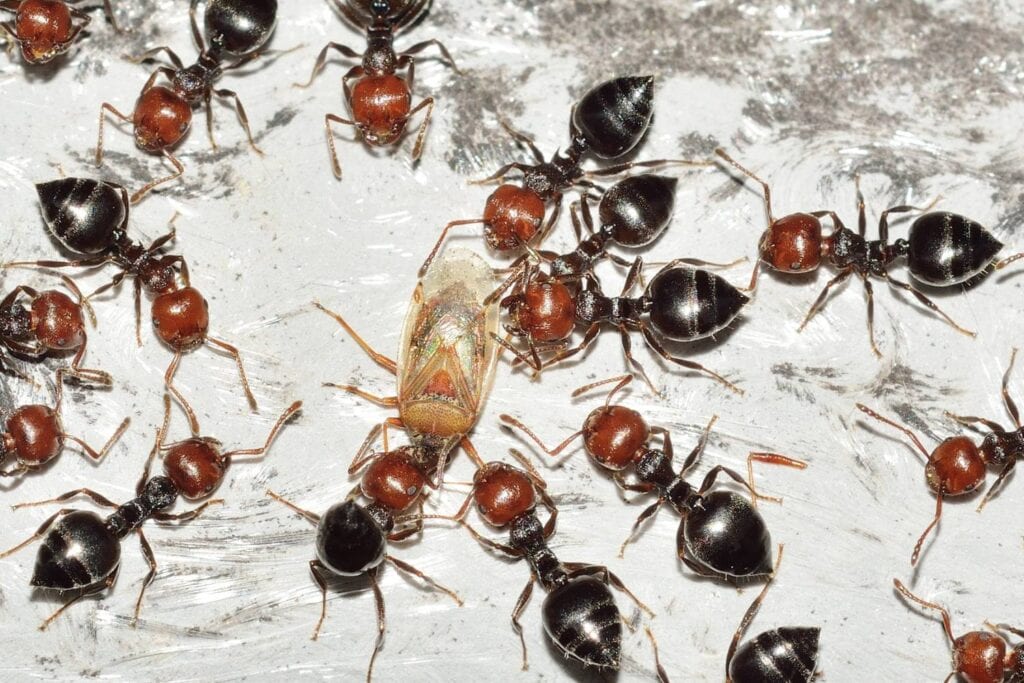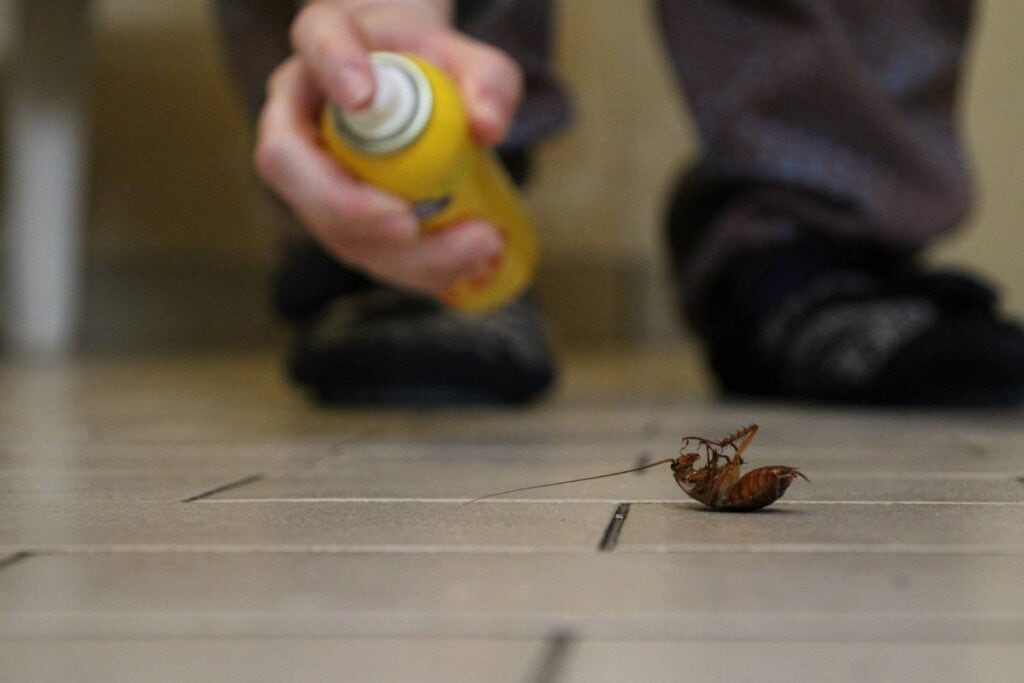It may be convenient to store your car, motorcycles, and tools in the garage, but unwanted pests will find it to be the perfect place to hide from the elements. You have come to the right place if you've been trying to figure out how to keep bugs out of your garage. If you want to keep pests at bay, the best thing you can do is to make sure your garage is always spotless and devoid of any potential attractants like food, water, or hiding places.
Why Insects Love Garages
At some point or another, most people will have a bug, rodent, or other pest encounters in their garage. Are you curious about the fascination of insects with garages? A few of the following explanations probably apply:
- The garage is a safe haven for insects and rodents, shielding them from the elements, natural predators, and other threats. If the pests' outdoor habitat has been destroyed, they may seek refuge in your garage.
- They're effective at recreating a bug's natural habitat: The conditions in a garage are very similar to those in which many common pests thrive, so they are frequently visited by these insects.
- Bugs and other insects are attracted to the delicious odours of food, flowers, spillage, stockpiled grains, animal food, and birdseed, all of which could be found in your garage. Insects and other pests are drawn to the odours of waste, blood, and sweat.
Why Getting Rid of Insects in the Garage Is Important
Pests like insects and rodents aren't just an annoyance; some of them can even be harmful. Some pests can do a lot of harm to your garage and the things in it. Even the garage might be used as a backdoor by an intruder. Bacteria and infectious diseases can be transferred by some pests, such as rats and flies. That's why it's so important to get rid of bugs as soon as possible.
How to Keep Pests Away From Your Garage
You're ready to face the bugs and go outside, right? If you take the time to do a few things, you may have a garage that is pest-free and gives you some much-needed peace of mind.
Store Your Items Safely
Unknowingly, we invite bugs to establish a home out of the heaps of gear we store hastily in the garage's back corner until next season. The best friends of a pest-free garage are airtight boxes and sacks.
After stowing away equipment, tools, and toys in airtight containers, put them on shelving or pallets to keep pests from getting in. Not only does elevating your belongings above the floor lessen their exposure to wetness, but it also makes it much more difficult for pests to get them.
More clutter means more locations for insects to hide. This could be an interesting weekend activity.
Eliminating items that haven't been used in a long time (months or years) is a simple and effective way to reduce clutter. Termites can also infect old wood, so it's important to get rid of any lumber that could attract them.
Reduce the number of items till you can go on to the next step of arranging. To begin, divide the room into sections that reflect different uses: commonly used items, garden supplies, seasonal items, etc. Installing necessary storage and filing mechanisms is the next step.
- A pegboard installed on the wall opposite the entrance provides a convenient spot to hang cleaning supplies and tools.
- If you want to park cars in the garage, installing shelves is a great method to maximise the vertical space there.
- If you utilise your garage for a hobby, mobile shelves will become indispensable.
- Putting labels on containers is another great way to save time when searching the garage for a certain item.
Repair What Must Be Fixed

Those pests got in some way, and it wasn't always a wide-open entrance. Seal any gaps you find in the walls or foundation of the garage with silicone caulking. Weather stripping and seals around windows and doors should be checked for wear and replaced if necessary. To prevent pests from easily entering once you've sealed the doors, keep them open for the shortest amount of time possible.
There is a lack of standardisation in garage door installation practises, therefore, doors are rarely made to be completely airtight. Due to the fact that garages are typically not weatherized like homes, insects find it considerably simpler to get in.
In order to ensure that your garage door seals properly, you should go in there during the day without turning on any lights. If there are holes, you'll be able to see them clearly now.
The garage door's perimeter can be sealed in a few different ways:
- Weatherstripping - Comparable to door weatherstripping, this item is used to keep the elements out of your home. Weatherstripping that is old, worn, and cracked should be removed, and the sealant scraped clean before being replaced.
- Threshold Replacement - It's not uncommon for the rubber threshold at the base of the door to wear out and require replacement.
- Repair the Breaks - If the door isn't properly aligned, the seal won't hold.
- Track Adjustments - The track of some garage doors can be adjusted to improve the door's fit and make it flush.
Prevent Pest Entry
In both athletics and insect control, a strong offence is preferable to a weak defence. Oils, powder, spray, and liquid solutions are only some of the deterrents available; they work by impeding, confusing, or frightening bugs away. Consult a pest control expert if you need guidance choosing a repellent that will work in your garage.
Eliminate Pre-existing Insects
First things first: make sure no bugs are currently residing in your garage before taking any preventative measures.
Look throughout your garage, under boxes, beneath shelves, on the ceiling, and anywhere else you could have stored goods. Keep an eye out for evidence of infestation such as bite or scratch marks, cracks, abandoned corpses or shells, nesting mounds, and other forms of damage to your things while you investigate your garage.
Find out what type of pest you're dealing with by doing some research if you come across an insect or evidence of an infestation. This will aid in determining the most effective way of elimination and will point you in the direction of adjacent rooms to check for possible pest spread.
It is imperative that any current vermin or infestations be eradicated: Last but not least, get rid of any existing bugs by using pesticides, traps, or getting in touch with an experienced pest management business.
To get rid of pets in the garage, you can either use pesticides or set up hand traps, or you can hire the best pest management service. Throughout the garage, set out manual traps such as ant catchers, fly strips, and mouse traps to catch any unwanted pests. It's important to remember to swap out the traps on a regular basis.
Using a non-toxic insecticide, spray the areas surrounding the garage door, windows, and walls. When spraying pesticides in a closed space like a garage, you should always open windows and doors to disperse the fumes.
Spruce up the Space
Cleaning and organising your garage can go a long way towards keeping pests away. Pick up any dropped food and mop up any liquids that could serve as a feast for pests. Gather cleaning supplies to see the task through, as even the remnants of a meal might attract pests. If you must keep food in the garage, make sure to use an airtight container and keep them off the floor on a shelf. Garbage cans kept within the garage should also have secure lids and, if possible, be placed on shelves. A simple table or shelf can go a long way.
Since insects thrive in disarray, clearing up the garage is the initial (and maybe most crucial) step you can take to avoid an infestation.
Dry it out: locate any moist spots and fix the source of the water. Then, use a towel or a small, portable fan to evaporate the water. If you want to keep your garage in good condition and reduce the damage that humidity may do, you need to ensure that it has adequate ventilation.
Bugs like to make a home in disarray, so if you don't want them invading your garage, get rid of all the junk. Bugs can be avoided by keeping the floor swept and mopped regularly. Closely guard all perishables by storing them in an airtight container.
If you're going to keep trash in your garage, make sure it's well sealed. Put lids on garbage cans and take out trash bags when they fill up. Don't ever leave garbage cans open or full trash bags lying about.
Snare or Lure Your Prey
If you find that you still need to get rid of pests from your garage after taking preventative steps, you can do so by purchasing bait and traps from your neighbourhood home improvement store. You can be more efficient in your pest control efforts if you have a good idea of what kinds of pests are hiding out in your garage. Remember to regularly check and replace traps as directed on the packaging.
You can also contact our pest control experts if you need assistance removing pests from your garage. Our staff has been educated to recognise the presence of unwanted pests, create an effective strategy for eliminating them, and see those outcomes. Don't wait another minute if you notice pests inside or outside your home.
Garage Pests to Watch Out For
There can be anything from a few annoying flies to a full-blown rodent infestation in your garage. Some typical garage pests are:
Deer mice: These little rodents are well-known for taking up residence in cardboard boxes and cracks in the wall during the winter. Your vehicle is also at risk if mice manage to get inside it and start chewing on wiring in search of a comfortable nesting spot.
Spider: Due to the suffocation of other insects in the garage, spiders find it to be an ideal environment. The easiest strategy to prevent spiders in your garage is to eliminate other pests that provide a food supply for them. Remove cobwebs from door and window frames and baseboards by giving them a good sweeping on a regular basis.
Flies: These insects are drawn to pungent scents. To prevent a fly infestation, it's important to never store food or other odorous materials in the garage.
Crickets: During the warmer and drier months, these noisy insects frequently seek refuge in a garage's cool and shady interior. They can easily access your top shelves because of their impressive jumping ability.
Silverfish: These tiny insects can readily slip through crevices and beneath doors. These pests are attracted to both meat and fabric, so leaving out food or having a lot of loose items around can attract them. Insect repellent specifically designed for use in the garage may be useful for warding off these pests.
Sowbugs: Instead of being insects, sowbugs are crustaceans that are more closely linked to shrimp and lobsters. Because their bodies are unable to store water, they gravitate towards chilly, damp, and wet environments.
If It Is Getting Out of Hand, Consider an Expert

Homeowners may be able to get rid of a few pests on their own, but there are some cases where it's best to call in the pros. You should think about hiring a pest control expert if:
If you've exhausted all DIY pest control options with little success, it may be time to call in the pros, especially if the infestation is just getting worse.
You're worried about the safety of your loved ones since wasps might attack if you try to demolish their nest and fail. When someone in your household is allergic to a certain bug, a bite might be much more than just unpleasant. Pesticides made from chemicals pose a threat to children as well. Do not risk the well-being of your loved ones by intervening without first consulting professionals.
You despise bugs; if you feel unprepared to deal with them on your own, an exterminator may be your best bet.
It's imperative that a specialist address your particular issue: Some pest problems just can't be solved without the expertise of a professional exterminator. Some pests, like bed bugs, require a team of professionals to eradicate.
Conclusion
Insects and other pests love to take refuge in garages from the elements. The greatest thing you can do is to never leave any food, water, or hiding spots in the garage, and to keep it clean. Insects and rodents, in particular, may wreak havoc on your garage and the belongings stored within. Storage containers and bags with tight seals are vital for keeping the garage rodent- and insect-free. Items that are kept off the ground are significantly less accessible to insects and rodents.
Silicone caulking can be used to fill in cracks in the garage's walls and floor. The seals and weather stripping around your windows and doors should be inspected for any signs of wear. Remove old, worn, and damaged weatherstripping and scrape the sealant clean before installing new weatherstripping. The door's fit can be fine-tuned using the track's adjustment options to provide a more seamless appearance. Professionals in the field of pest management will be able to detect the presence of pests and eliminate them entirely.
Eradicate the presence of other pests in the garage, as this will deprive spiders of a food source and therefore reduce their population. Sweep the door frames, window sills, and baseboards on a regular basis to get rid of cobwebs. To keep them away, you could try an insect repellent specifically made for the garage. Pests like bed bugs are so difficult to get rid of that it takes an army of experts to do it. Do not put your loved ones in danger by trying to help them without seeking expert advice.
Content Summary
- It may be convenient to store your car, motorcycles, and tools in the garage, but unwanted pests will find it to be the perfect place to hide from the elements.
- If you want to keep pests at bay, the best thing you can do is to make sure your garage is always spotless and devoid of any potential attractants like food, water, or hiding places.
- Pests like insects and rodents aren't just an annoyance; some of them can even be harmful.
- Some pests can do a lot of harm to your garage and the things in it.
- That's why it's so important to get rid of bugs as soon as possible.
- The best friends of a pest-free garage are airtight boxes and sacks.
- After stowing away equipment, tools, and toys in airtight containers, put them on shelving or pallets to keep pests from getting in.
- Reduce the number of items till you can go on to the next step of arranging.
- If you utilise your garage for a hobby, mobile shelves will become indispensable.
- Seal any gaps you find in the walls or foundation of the garage with silicone caulking.
- To prevent pests from easily entering once you've sealed the doors, keep them open for the shortest amount of time possible.
- Consult a pest control expert if you need guidance choosing a repellent that will work in your garage.
- First things first: make sure no bugs are currently residing in your garage before taking any preventative measures.
- Find out what type of pest you're dealing with by doing some research if you come across an insect or evidence of an infestation.
- It is imperative that any current vermin or infestations be eradicated: Last but not least, get rid of any existing bugs by using pesticides, traps, or getting in touch with an experienced pest management business.
- To get rid of pets in the garage, you can either use pesticides or set up hand traps, or you can hire the best pest management service.
- Cleaning and organising your garage can go a long way towards keeping pests away.
- Bugs like to make a home in disarray, so if you don't want them invading your garage, get rid of all the junk.
- If you're going to keep trash in your garage, make sure it's well sealed.
- If you find that you still need to get rid of pests from your garage after taking preventative steps, you can do so by purchasing bait and traps from your neighbourhood home improvement store.
- You can be more efficient in your pest control efforts if you have a good idea of what kinds of pests are hiding out in your garage.
- There can be anything from a few annoying flies to a full-blown rodent infestation in your garage.
- The easiest strategy to prevent spiders in your garage is to eliminate other pests that provide a food supply for them.
- Remove cobwebs from door and window frames and baseboards by giving them a good sweeping on a regular basis.
- To prevent a fly infestation, it's important to never store food or other odorous materials in the garage.
- Insect repellent specifically designed for use in the garage may be useful for warding off these pests.
- Homeowners may be able to get rid of a few pests on their own, but there are some cases where it's best to call in the pros.
- If you've exhausted all DIY pest control options with little success, it may be time to call in the pros, especially if the infestation is just getting worse.
- You despise bugs; if you feel unprepared to deal with them on your own, an exterminator may be your best bet.
- It's imperative that a specialist address your particular issue: Some pest problems just can't be solved without the expertise of a professional exterminator.
FAQS About Pest Control
Within a day or two, you should start to observe a marked decrease in insect activity. The length of time required to achieve the desired effects is based on the type of pest we are fighting and the products we decide to use.
Early spring is ideal for having your home sprayed. Spraying in the early spring allows you to eliminate nests or colonies when insect populations are at their lowest. The treatment requires less effort from the patient and has a longer duration as a result.
Common pests can be prevented with a 15- to 30-minute treatment. Depending on how extensive an infestation is, it can take anywhere from 90 to 120 minutes to get rid of ants or cockroaches. To kill termites, heat for at least four hours.
Having a monthly or bimonthly appointment with a pest control provider is strongly suggested. You can use this to prevent spiders, silverfish, and other insects and rodents from entering the interior of your home.
Having your home or business protected by a pest control service is important because insects may spread disease and cause expensive damage. In most cases, when people think of "pest management" or "pest control," they envision the elimination of insects like cockroaches, spiders, and fleas.



